Video Lectures and Panel Discussions for Classroom Use
In 2020-2021, the CSRCS invited distinguished scholars from around the country and our own campus to produce video lectures for classroom use. This initiative came in response to the rapidly changing teaching environment that the COVID-19 pandemic and our national life were shaping. We are retaining the following videos on our website for use in any Elon class through the CSRCS Kaltura channel.
Abortion and Religion: Is Texas the New Public Square
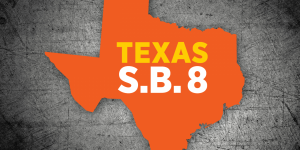 Dr. Rebecca Todd Peters (Elon University), Zahra Ayubi (Dartmouth University), Rev. Erika Forbes (Just Texas, Texas Freedom Network), Rev. Cari Jackson (Religious Coalition for Reproductive Choice), Rev. Sonja Miller (Whole Women’s Health), Dr. Michal Raucher (Rutgers University)
Dr. Rebecca Todd Peters (Elon University), Zahra Ayubi (Dartmouth University), Rev. Erika Forbes (Just Texas, Texas Freedom Network), Rev. Cari Jackson (Religious Coalition for Reproductive Choice), Rev. Sonja Miller (Whole Women’s Health), Dr. Michal Raucher (Rutgers University)
This panel discussion featuring multifaith clergy, scholars, and reproductive rights advocates addressing Texas law SB8. This 2021 statute bans most abortions after six weeks into a pregnancy and relies for enforcement on citizen-informants turning in their neighbors for “aiding and abetting” an abortion, offering $10,000 in reward for successful lawsuits. In this conversation, panelists will discuss what is happening on the ground in Texas and what the ramifications are for the larger public square. Available here.
Religion Trending: Star Wars and Islam
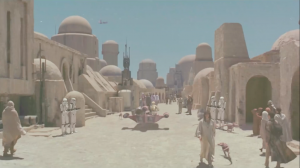 Sandy Marshall and Shane Atkinson (Elon University)
Sandy Marshall and Shane Atkinson (Elon University)
CSRCS Scholar Sandy Marshall is joined by Elon Imam Shane Atkinson and other guests to explore the surprising thematic and aesthetic connections between the Star Wars movie franchise and Islam.
Elon University 2021 Baccalaureate Address
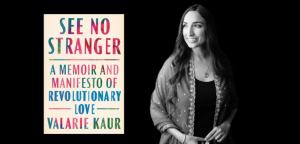 Valerie Kaur (Revolutionary Love Project), Interfaith Activist and documentary filmmaker
Valerie Kaur (Revolutionary Love Project), Interfaith Activist and documentary filmmaker
Valerie Kaur was in college when she started her quest to investigate hate violence against Sikhs, Muslims and Arabs. Fueled by the grief she felt in the aftermath of her uncle’s death – a fellow Sikh and victim of a hate crime following 9/11 – she searched for answers that took her years to understand. As a result of her journey, Kaur shared three practices with the Class of 2021 that she wished she knew when she received her undergraduate degree from Stanford University. Available on Facebook Live here.
Religion Trending: Insurrection, Image, and Identity in the Assault on the US Capitol
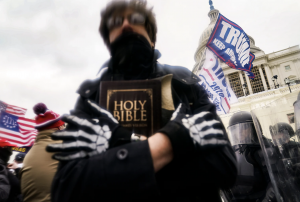 Lynn Huber and Andrew Monteith (Elon University)
Lynn Huber and Andrew Monteith (Elon University)
In this Religion Trending discussion recorded on Jan. 8, 2021, Elon religious studies faculty Huber and Monteith dissect tattoos, explain prophesies, and note the many distinct religious currents that fed the mob attack on the “temple of democracy” in Washington DC.
Pandemic Religion: How Plagues Shaped Christianity from the Past to the Present
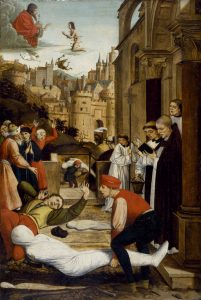 John Penniman (Bucknell University; Elon Class of 2005)
John Penniman (Bucknell University; Elon Class of 2005)
While 2020 witnessed a pandemic of unprecedented proportion and scope, it was not the first year in human history in which an infectious disease brought devastation to human life on a broad scale. Epidemics have reshaped societies regularly throughout history, forcing people to question their understanding of the world and their place within it. This lecture explores the consequences of epidemics on religious communities from antiquity to today. Drawing connections between a third-century outbreak in North Africa, a 17th century outbreak in London, and the past year of events in America, Elon alumnus Dr. John Penniman, discusses how historic public health disasters reveal the impact of infectious diseases upon Christian thought and practice.
Confederate Monuments as Sacred Objects
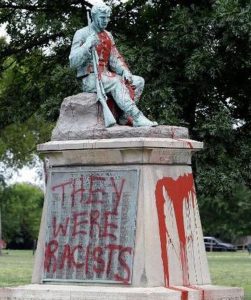 Ryan Newson (Campbell University; Elon Class of 2007)
Ryan Newson (Campbell University; Elon Class of 2007)
In 2020 Confederate monuments were flash-points across the country as Black Lives Matter protests reignited in the wake of the murders of George Floyd, Breonna Taylor, and many others. Some were quietly removed, some were taken down violently, and many were destroyed. BLM and these attacks, however, also sparked vigorous defense of monuments and the honorable “lost cause” they are alleged to represent. Why do these memorials spark such fervent devotion, including in Alamance County, especially among white southerners? Elon alum and Campbell University professor Ryan Newson explores this question.
The Metaphysics of Racism in Islam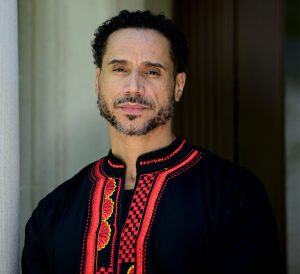
Bilal Ware (University of California, Berkeley)
Dr. Bilal Ware is a historian of Africa and Islam and the founder and director of the Initiative for the Study of Race, Religion, and Revolution (ISRRAR). In this lecture hosted by Elon’s Imam Shane Atkinson, drawing from the Qur’anic text and his field research in West Africa among Sufi communities, Dr. Ware examines the nature and causes of racism. He argues that white supremacy is the greatest historical expression of racial hierarchies first articulated in the Qur’an and that forms of anti-racist resistance built on an understanding of a human nature shared by both oppressor and oppressed are most effective. Available on YouTube here.
White Too Long: Reckoning with the Legacy of White Supremacy in American Christianity
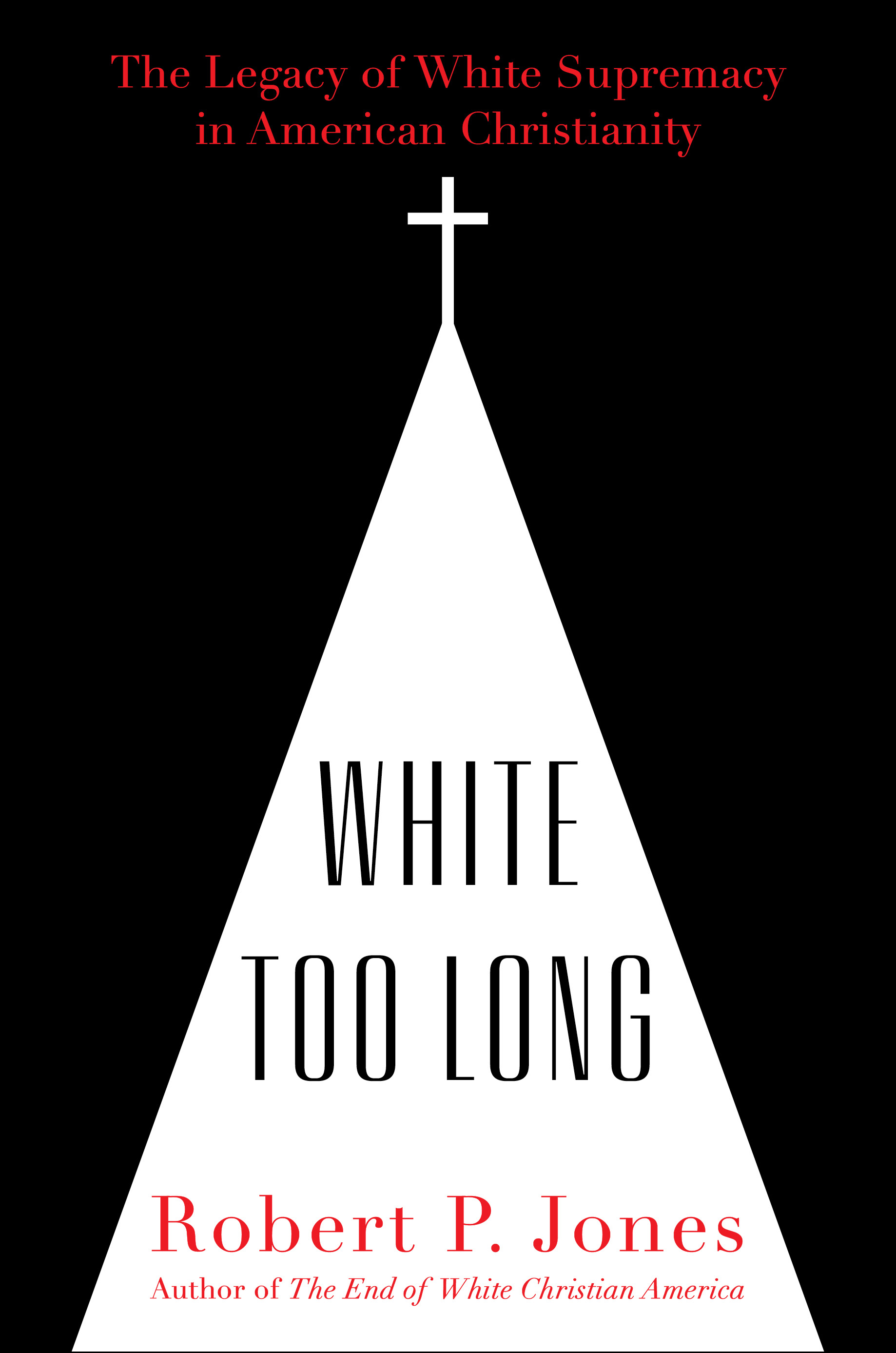 Robert P. Jones (Public Religion Research Institute)
Robert P. Jones (Public Religion Research Institute)
In this lively discussion with Elon faculty members Toddie Peters (Religious Studies), Damion Blake (Political Science), and Buffie Longmire-Avital (Psychology), US pollster and scholar of religion Robert P. Jones talks about his 2020 book, White Too Long: The Legacy of White Supremacy in American Christianity. Providing both a history of racism in US denominations and contemporary polling data, White Too Long delivers a provocative examination of race and American Christianity and issues an urgent call for white Christians to reckon with this legacy for the sake of themselves and the nation. Available on the CSRCS Kaltura channel or on YouTube here.
Religion Trending: Hagia Sophia
Panel discussion with Elon faculty
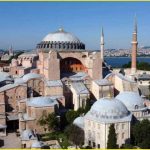 Religion Trending is a regular panel series put on by the CSRCS and hosted by Dr. Sandy Marshall that explores religion in the headlines. In June 2020 Turkish Prime Minister Recip Tayyip Erdogan announced that one of the world’s most famous buildings, Hagia Sophia in Istanbul, which was originally built as a cathedral in 537 and later served as a mosque and museum, would again function as a mosque. A panel of Elon faculty discusses the reasons for this controversial decision in light of its reputation as an architectural treasure for all humanity. Featuring Drs. Evan Gatti (Art History), Sumeyye Pakdil (Religious Studies), and Baris Kesgin (Political Science).
Religion Trending is a regular panel series put on by the CSRCS and hosted by Dr. Sandy Marshall that explores religion in the headlines. In June 2020 Turkish Prime Minister Recip Tayyip Erdogan announced that one of the world’s most famous buildings, Hagia Sophia in Istanbul, which was originally built as a cathedral in 537 and later served as a mosque and museum, would again function as a mosque. A panel of Elon faculty discusses the reasons for this controversial decision in light of its reputation as an architectural treasure for all humanity. Featuring Drs. Evan Gatti (Art History), Sumeyye Pakdil (Religious Studies), and Baris Kesgin (Political Science).
Religion, Spirituality, and HIV
 Magdalena Szaflarski (University of Alabama, Birmingham)
Magdalena Szaflarski (University of Alabama, Birmingham)
Dr. Szaflarski reviews the scientific evidence about the role of religion and spirituality in the lives and treatment of persons living with HIV as well as the role of faith communities in promoting both HIV-related stigma and HIV education. The lecture also suggests how these findings indicate ways in which religious communities can address the COVID-19 pandemic.
Defend the Sacred: Native American Religious Freedom beyond the First Amendment
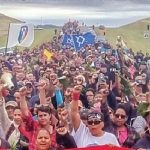 Michael McNally (Carleton College)
Michael McNally (Carleton College)
This lecture discusses how Native peoples, from North Dakota’s Standing Rock encampments to Arizona’s San Francisco Peaks, have repeatedly asserted legal rights to religious freedom to protect their sacred places, practices, objects, knowledge, and ancestral remains. Finding little success in the courts, they have creatively turned to other legal means to safeguard what matters to them. Hosted by the Jay Phillips Center for Interreligious Studies at St. Thomas University (St. Paul, MN) and co-sponsored by the CSRCS, the unpublished link for this lecture is available to Elon audiences by emailing bpennington4@elon.edu.
The African Roots of Islam in America
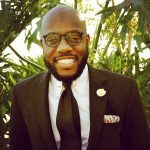 Ustadh Ubaydullah Evans (Scholar-in-Residence, American Learning Institute for Muslims)
Ustadh Ubaydullah Evans (Scholar-in-Residence, American Learning Institute for Muslims)
This discussion with Ustadh Ubaydullah Evans centers the Muslim influences brought to the Americas by enslaved African peoples. Ubaydullah cites the historical erasure of Black American Muslims and the exceptional nature of African-American communal conversions. After converting to Islam in high school, Ustadh Ubaydullah received a degree in journalism from Columbia, studied at Chicagoland’s Institute of Islamic Education (IIE), and was the first African-American to graduate from Al-Azhar University’s (Cairo, Egypt) Shari’a program. He now serves as the first American Learning Institute for Muslims (ALIM) scholar-in-residence. A recording of the discussion is available here.
Black Dharma
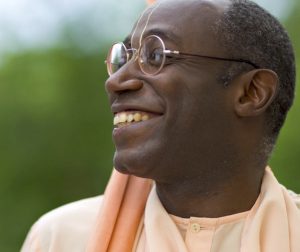 Krishni Metivier (Duke University)
Krishni Metivier (Duke University)
Black Americans are often identified with African-American Christianity, while the reality of Black spirituality in this country is much more complex. Common ideas about Buddhism and Hinduism, moreover, overlook the important contributions of Black Americans. This lecture by a Duke University Ph.D. student who is forging new pathways into the study of “Dharma Traditions” will open your eyes to rich and little-known spiritual intersections in the United States. And note this also: Prof. Metivier has authored detailed lesson plans on Black American experience of Hinduism and Buddhism that include student activities exploring digitized primary documents at Duke University’s Rubenstein Library here. It’s really great teaching material!
Keeping it Reel: Muslims Changing Images of Muslims in Film and Television
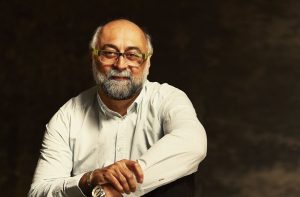
Amir Hussain (Loyola Marymount University)
This lecture examines how Muslims working in the film and television industry today have helped to change the stereotyped images that cartoons, professional wrestling, and action movies once perpetrated. From Canada’s popular “Little Mosque on the Prairie” series to Hulu’s “Ramy” today, Muslim actors, directors, writers, and producers have projected more humane images that reflect the everyday lives of Muslims.
Archives
Older recordings of lectures held at Elon and other events sponsored by the CSRCS are available on its YouTube channel and on this page.